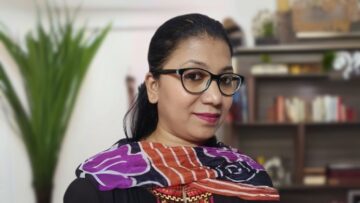
In an effort to strengthen economic ties and mitigate rising trade tensions with the United States, Bangladesh has announced plans to significantly increase imports of American cotton, oil, and gas. Bangladesh’s Chief Adviser Muhammad Yunus revealed these intentions during an exclusive interview with Nikkei Asia, emphasising the country’s strategic move to reduce its trade deficit and foster better relations with Washington.
The announcement comes amid signals from the Trump administration of a tougher stance on trade, including a proposed policy of “reciprocal tariffs” that could raise duties on Bangladeshi exports to the US from 15 per cent to as high as 52 per cent. Such a move threatens to impact Bangladesh’s vital apparel industry, which heavily relies on exports to the US
Yunus, who is currently attending the 30th Nikkei Forum: Future of Asia in Japan and engaging in bilateral talks with Japanese Prime Minister Shigeru Ishiba, stated that Bangladesh is considering shifting its cotton sourcing from Central Asian countries and India to the United States. The goal is to narrow the trade deficit and foster closer economic cooperation.
“We buy a lot of cotton from Central Asia, Uzbekistan and Turkmenistan,and also from India,” Yunus explained. “Now we’re exploring why we don’t buy it from the US, so the trade deficit with the United States will go down significantly.”
In the fiscal year 2023–24, Bangladesh imported approximately US $ 361 million worth of cotton from the US, out of a total US $ 2.5 billion in US imports. Meanwhile, Bangladesh exported goods worth US $ 6.8 billion to the US, with ready-made garments constituting the majority. Raw cotton accounted for 12.5 per cent of Bangladesh’s total imports, valued at US $ 7.9 billion.
Yunus highlighted that strengthening ties with US cotton suppliers could bring economic benefits and strategic goodwill, noting that American cotton producers have become “very good friends” of Bangladesh. He also mentioned that such relationships could provide Bangladesh with political access to the US administration.
To counter potential tariff hikes, Bangladesh has formally requested a three-month deferral of the proposed duties to allow for diplomatic engagement and review. Additionally, the country’s National Board of Revenue (NBR) is expected to propose zero import duties on 100 new items in the upcoming 2025–26 budget, aiming to expand bilateral trade and support exporters.
If these measures are approved, redirecting key imports to the US could represent a significant shift in Bangladesh’s trade policy, fostering closer integration with American supply chains and potentially securing preferential treatment.
As geopolitical and economic uncertainties continue to grow, Bangladesh’s proactive approach underscores its intent to maintain trade stability, protect its competitive edge in the global textile industry, and navigate the shifting landscape of US trade policies under the Trump administration.






